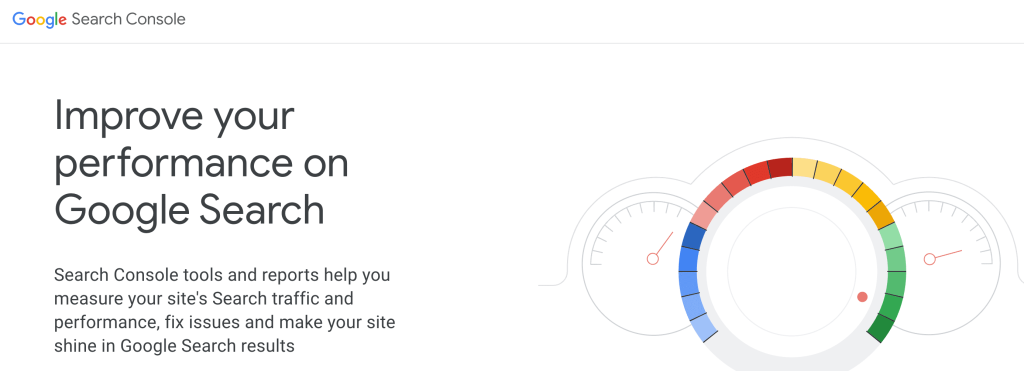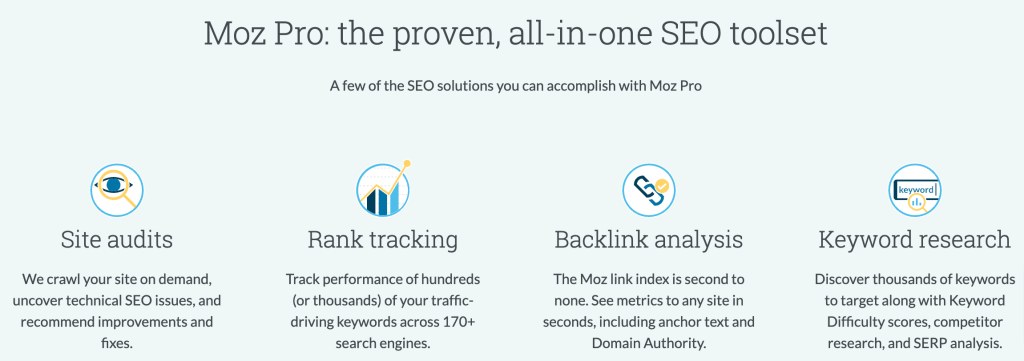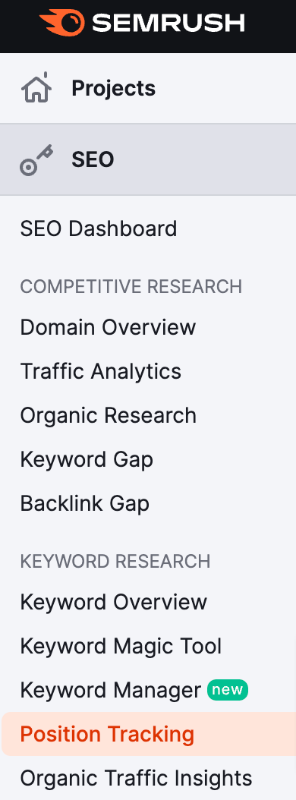In the digital age, Search Engine Ranking is crucial for website success. Being on the first page of search results drives traffic and revenue.
However, keeping tabs on search engine rankings is not a straightforward task.
With ever-evolving algorithms, personalized search results, and intense competition, the process requires precision, continuous monitoring, and access to the right tools.
According to a recent survey, 72% of marketers consider tracking rankings important. Businesses that track their rankings are 2.5x more likely to see improvement.
Fortunately, this article is a complete guide on How to track search engine rankings and various techniques, tools, and best practices for tracking search engine rankings effectively.
Let’s quickly delve into it.
TLDR: How To Track Search Engine Rankings
If you want to evaluate the success of your SEO efforts with ease and accurate outcomes, then here is my recommendation to help you choose a wise option.
Go with the SEMrush. I have been using SEMrush since the beginning of my SEO journey.
I strongly recommend it, as you can monitor your keyword positions on search engine result pages, track organic traffic, and analyze competitor rankings with ease to stay ahead in the game.
Understanding Search Engine Rankings
Search engine rankings refer to the positions at which your website appears on SERPs when users search for relevant keywords.
When a user enters a search term or keyword into a search engine like Google, the search engine’s algorithm evaluates and ranks relevant web pages based on a variety of factors.

The web pages that rank higher on the SERPs are more likely to receive organic (non-paid) traffic and visibility.
Websites that rank higher are more likely to receive organic traffic, visibility, and potential customers.
It’s crucial to understand the dynamics of search engine algorithms and factors that influence rankings, such as website relevance, content quality, backlinks, user experience, and mobile-friendliness.
How To Track SEO Rankings
When it comes to checking your website’s SEO rankings, you have a few options at your disposal.
- Manual Search: One way is to perform a manual search on search engines like Google or Bing.
This involves entering the keywords you want to track and noting where your website appears in the search results. However, this method can be quite time-consuming, especially if you’re monitoring multiple keywords.
- Google Search Console: Another tool that I personally find valuable is Google Search Console.
This resource provides insightful data on your website’s performance in Google’s search results. With Google Search Console, you can closely monitor your website’s rankings, click-through rates, and impressions for different keywords.
It also offers useful information on crawl errors, backlinks, and other important SEO-related metrics.
- Rank Tracking Tools: If you’re looking for a more efficient way to track your website’s search engine rankings, you may want to consider using dedicated rank tracking tools.
These tools can automate the tracking process and provide you with comprehensive data, including keyword tracking, competitor analysis, historical data, and performance reports.
Setting Up a Rank Tracking Campaign
To track search engine rankings effectively, you need to set up a rank-tracking campaign using . I feel making use of rank-tracking tools is the best way to keep track of your rankings. Here are the easy steps involved to monitor your keywords:
- Define Your Keywords: Identify the keywords you want to track based on relevance and search volume.
- Choose a Rank Tracking Tool: Select a suitable rank-tracking tool from the options mentioned above.
- Set Up Your Campaign: Enter your target keywords and configure the tracking parameters, such as search engines and locations.
- Monitor Your Rankings: Regularly check the ranking data provided by the tool and monitor any fluctuations or trends.
Analyzing and Interpreting Ranking Data
Once you have collected ranking data, it’s essential to analyze and interpret it effectively. Here are some aspects to consider:
- Keyword Performance: Identify keywords with significant changes in rankings and assess the impact on organic traffic.
- Competitor Analysis: Compare your rankings with competitors to identify areas for improvement or opportunities to outrank them.
- Historical Trends: Look for patterns and trends in ranking data over time to understand the effectiveness of your SEO strategies.
- Algorithm Updates: Correlate ranking fluctuations with known algorithm updates to adapt your SEO tactics accordingly.
Tools for Tracking Search Engine Rankings
To effectively track search engine rankings, various tools, and software are available. These tools provide comprehensive data, historical trends, and analysis to aid your SEO efforts. Some popular options include:
1. SEMrush:
SEMrush is a powerful SEO suite that offers a wide range of features, including comprehensive rank tracking.
With SEMrush, you can track your website’s rankings on multiple search engines, monitor keyword positions, and analyze the performance of your competitors.

It also provides keyword research tools, backlink analysis, and other valuable SEO insights.
2. Google Search Console:
Google Search Console is a free tool provided by Google that offers valuable insights into your website’s presence on Google Search.

It allows you to monitor your website’s performance, submit sitemaps, and identify any issues that may be affecting your search rankings.
While it may not offer as extensive rank-tracking features as other dedicated tools, it is an essential tool for understanding how Google sees and indexes your website.
3. Ahrefs:
Another tool that I highly recommend is Ahrefs. It’s an all-inclusive SEO tool that covers a wide range of functionalities.
From comprehensive keyword tracking to in-depth backlink analysis and competitor research, Ahrefs has got you covered.

With Ahrefs, you can effortlessly track your website’s rankings for specific keywords, gain insights into your competitor’s strategies, and uncover opportunities to optimize your SEO efforts further.
It also offers valuable features like backlink analysis, site audits, and content analysis, making it a go-to tool for SEO professionals.
Moz:
Moz is another prominent player that offers various features to help you track search engine rankings.
It is particularly known for its domain authority metric, which provides an estimate of a website’s overall authority in search engines.

Moz offers rank tracking, keyword research, and SEO insights to help you optimize your website’s performance. It also provides other useful features like backlink analysis, on-page optimization recommendations, and site crawling.
Also Read: The Ultimate Battle Between Ahrefs and Moz
SERPWatcher:
Lastly, I want to mention SERPWatcher, a user-friendly tool specifically designed for rank tracking.
What I love about SERPWatcher is its simplicity and ease of use. It allows you to effortlessly track your website’s rankings for specific keywords and provides customizable reports and data visualization options.

With SERPWatcher, you can keep a close eye on your progress over time, identify trends, and measure the impact of your SEO efforts accurately.
Importance of Tracking Search Engine Rankings
Tracking search engine rankings is crucial for businesses, website owners, and digital marketers. Here are some reasons why:
- Performance Measurement: Tracking search engine rankings gives insights into your website’s visibility and SEO efforts over time.
- Competitor Analysis: Tracking search engine rankings help you keep an eye on your competitors and identify strengths, weaknesses, and opportunities.
- Keyword Optimization: Understanding search engine rankings allows you to assess the effectiveness of your keyword targeting and make adjustments to improve rankings and attract more targeted traffic.
- SEO Strategy Refinement: Search engine rankings provide data that helps refine SEO strategies. By tracking rankings, you can identify what works well and what needs improvement.
- Goal Tracking and Reporting: Tracking search engine rankings measure progress toward SEO goals and communicate the value and impact of SEO to stakeholders.
- Algorithm Changes and Updates: Tracking search engine rankings keeps you informed about algorithm changes and their impact on website visibility, allowing you to adapt SEO strategies accordingly.
Key Metrics for Tracking Rankings
When tracking search engine rankings, several key metrics can provide meaningful data to evaluate your SEO performance. These include:
- Keyword Rankings: Monitor the positions of your target keywords on SERPs.
- Organic Traffic: Measure the amount of traffic generated from search engines.
- Click-Through Rate (CTR): Assess the percentage of users who click on your website’s link in the search results.
- Visibility Index: Calculate the overall visibility of your website based on keyword rankings.
- Competitor Analysis: Compare your rankings with those of your competitors to identify gaps and opportunities.

I always use Semrush to analyze search engine ranking as it has various features. Moreover, it has user-friendly interface making it to use.
Strategies for Improving Search Engine Rankings
To enhance your search engine rankings, consider implementing the following strategies:
- On-Page Optimization: Optimize your website’s content, titles, meta descriptions, and headings to align with target keywords.
- High-Quality Content: Produce engaging, relevant, and valuable content that attracts both users and search engines.
- Link Building: Build authoritative backlinks from reputable websites to increase your website’s credibility.
- Mobile Optimization: Make sure that your website is mobile-friendly and provides a smooth user experience across devices.
- User Experience: Enhance site speed, navigation, and accessibility to improve user engagement and satisfaction.
Future Trends in Search Engine Rankings
As search engines evolve, several trends are shaping the future of search engine rankings:
- Mobile-First Indexing: Search engines prioritize mobile-optimized websites for ranking, reflecting the dominance of mobile browsing.
- Voice Search: The rise of voice assistants and smart speakers is changing the way users search, influencing ranking factors.
- Artificial Intelligence (AI): AI-powered algorithms enable search engines to better understand user intent and provide more relevant results.
- User Experience Signals: Search engines increasingly prioritize websites that offer exceptional user experiences, impacting rankings.
Related Reads:
Conclusion- How To Track Search Engine Rankings
So, tracking search engine rankings is a vital practice for businesses and marketers aiming to enhance their online visibility and attract targeted organic traffic.
By utilizing the techniques and tools discussed in this article, you can gain insights, refine your strategies, and achieve better search engine rankings.
Remember, continuous monitoring, analysis, and adaptation are essential to navigate the ever-changing landscape of search engine optimization and drive sustainable online success.
With a data-driven approach, you can achieve higher rankings, attract more visitors, and ultimately enhance the success of your online presence.
What are your thoughts on this? Let us know in the comment section below.
FAQ- How To Track Search Engine Rankings
Tracking search engine rankings help you evaluate the effectiveness of your SEO efforts, measure visibility, and identify opportunities for improvement.
Regular monitoring is recommended, but the frequency depends on your website’s size, industry competition, and the pace of algorithm changes.
Yes, tracking rankings can reveal fluctuations, sudden drops, or improvements, indicating potential SEO issues or successful optimizations.
Yes, tools like Google Search Console provide basic rank-tracking features for free. However, paid tools offer more comprehensive insights.
Improving search engine rankings involves strategies like on-page optimization, quality content creation, link building, mobile optimization, and enhancing user experience.



